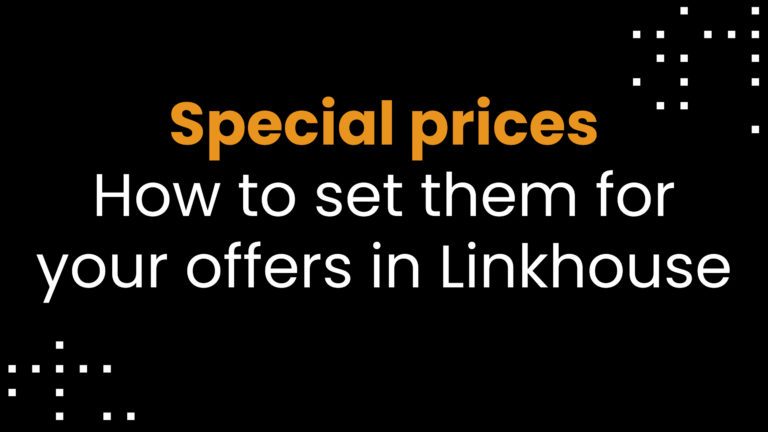HARO (Help a Reporter Out) links are highly prized in SEO due to their unique capacity to boost online visibility and authority. These links originate from reputable news outlets, enhancing website credibility and search engine rankings, making them a valuable asset in the competitive digital landscape.
To unlock the full potential of HARO links, we’ll provide you with a few proven tips on how to secure them effectively, ensuring your SEO strategy benefits from this powerful asset.
Link Building with HARO: A Quick Guide
HARO (Help a Reporter Out) links have become a sought-after asset in the world of digital marketing and search engine optimization. These links are a result of the HARO platform, which serves as a bridge between journalists and potential sources. It was founded in 2008 by Peter Shankman and has since evolved into a widely recognized platform for journalists and experts. Over the years, the platform—currently owned by Cision—has become an indispensable tool in digital marketing and SEO.
| DID YOU KNOW…?As advertised on the HARO website in October 2023, the platform is soon moving to Cision’s new app, Connectively. |
Why is HARO such a fantastic opportunity to increase your visibility online? Every year the platform distributes over 50,000 journalist queries from reputable media outlets. It reaches more than 1 million sources and connects with 75,000 journalists and bloggers.
How to Increase Your Online Visibility with HARO?
The concept behind HARO is quite simple. It is a platform connecting those who have questions with those who can answer them with accurate and trustworthy information. All you have to do is:
- Sign Up. Begin by registering on the HARO website as a source. Provide accurate information about yourself and your areas of expertise.
- Choose Relevant Categories. Select the categories or industries that align with your knowledge and experience. This ensures you receive queries that are suitable for your expertise.
- Receive HARO Emails. Once you’re signed up, you’ll receive regular HARO emails containing journalist queries. These emails typically arrive three times a day, each with a set of fresh queries.
- Craft Your Response. When you find a relevant query, compose a thoughtful and well-crafted response. Address the journalist or blogger by name, introduce yourself, explain why you’re qualified to answer their query and provide valuable insights or information.
- Submit Response. Send your response to the email address provided in the HARO query and cross your fingers for the blogger/journalist to like it and place a link to your website in their article.
Simple and straightforward, right? True, but the mere fact you are active on HARO does not guarantee new backlinks to your website and increased organic traffic.
If you want to truly use its full potential and optimize the benefits of its link-building opportunities, follow the following recommendations.
7 Top Tips for a Great HARO Link Building
Respond to Emails Promptly
One of the critical factors for the success of HARO link building is speed. Journalists are often on tight deadlines, so being among the first to respond to a query significantly increases your chances of being quoted in their articles.
Quick responses demonstrate your commitment and professionalism, making you a more attractive source. People appreciate those who help them optimize their own working time. The replies received within the first 30 minutes or so are the most likely to get the most attention.
Choose Quality Over Quantity
Instead of attempting to respond to a large number of queries, focus on those that are directly relevant to your expertise and experience. Providing well-thought-out, valuable responses to a few queries is more effective than submitting rushed or irrelevant answers to numerous requests.
| Practical example:Imagine you’re an expert in digital marketing, and you get an email from HARO with two questions. One is about making content for voice search, which you know a lot about. The other is about social media posts, a topic you’re not great with.Instead of trying to answer both, better focus on the voice search question, which you can easily provide a really good answer to. This way, you prioritize doing a great job over trying to answer everything.This strategy increases your chances of getting noticed and linked in your field of expertise. |
Build Relationships
The sooner you realize this, the better: HARO is not just about link-building; it’s also about establishing relationships with journalists and bloggers.
After being featured in an article, continue to engage with the people who mentioned your name in it. Share and promote the published content, offer to help with future articles and express your interest in collaborating again.
These efforts can lead to ongoing media opportunities and increased credibility. After all, we all like working with people we know, don’t we?
Show Credentials
When a journalist or blogger seeks information or insights from their HARO peers, they want to hear from someone with genuine expertise. To stand out in a sea of responses, introduce yourself and your qualifications in a concise yet compelling manner.
For example, you could mention the number of years you’ve worked in the industry, your specific area of expertise, and any notable publications or projects you’ve been involved in. By clearly articulating why you are well-suited to address the query, you immediately establish your credibility and expertise.
Showing credentials in HARO responses not only boosts your chances of being selected as a source but also enhances the overall quality and value of your response, benefiting both you and the journalist.
Make Responses Quantifiable and Quotable
Do you want your reply to stand out as convincing and reliable? Make sure to provide quantifiable data, study results, statistics, or quotes. Journalists are more likely to select responses that are rich in valuable, data-backed insights.
Being concise and quotable makes it easier for journalists to incorporate your input into their articles.
| DID YOU KNOW…?Google’s algorithm favors content with quantifiable and quotable data because it enhances user experience, providing valuable, easily digestible information, and reinforcing the credibility and relevance of the content. |
Keep It Cool – Don’t Follow Up Unless You Get a Response
After submitting your response, avoid sending follow-up emails unless you receive a reply from the journalist or blogger. Pestering HARO users with follow-up requests after answering their queries is not advisable because it can be perceived as pushy and unprofessional.
HARO contributors, often busy journalists, may have numerous responses to sift through, and multiple follow-ups can create a negative impression. It’s best to respect their time and decisions, as excessive persistence can deter them from considering your input in future articles or inquiries.
Stay Patient and Consistent
Understand that not every response will lead to a link or media coverage. HARO success rates can vary, and it’s normal to experience rejection. Stay persistent and positive in your approach, focusing on the quality of the relationships you build and the value you provide. Over time, your efforts will yield meaningful results.
| DID YOU KNOW…? According to HARO Helpers, the average success rate for outreaches on HARO is between 7-15%. If you want to increase your chances of getting noticed, make sure to: – provide a clear answer and not beat around the bush, – follow the instructions from the requirement box of the query you are responding to, – make the best of your introduction as a way to “sell” yourself effectively and make a compelling case for your expertise, – make your response “pleasant to the eye” in terms of its format and readability, – offer a unique insight that you’ve obtained through experience and knowledge, and that can’t be easily “googled”, – pay attention to the tone: people generally dislike those who come across as arrogant or pretentious know-it-alls. |
Consistency is key if you want to make your name known on HARO. See every pitch you make as a part of a long-term strategy. If you stay persistent, keep providing valuable insights, and build relationships with journalists and bloggers, your efforts will eventually pay off.
Whether you use HARO as a platform to boost your standing as an expert in your field or as a source of trustworthy answers to your queries, the vibrant community of reporters, journalists, and bloggers plays a vital role in enhancing the quality of online content. Help a Reporter Out fosters a mutually beneficial dynamic, helping both the individuals assisting and those seeking it.








